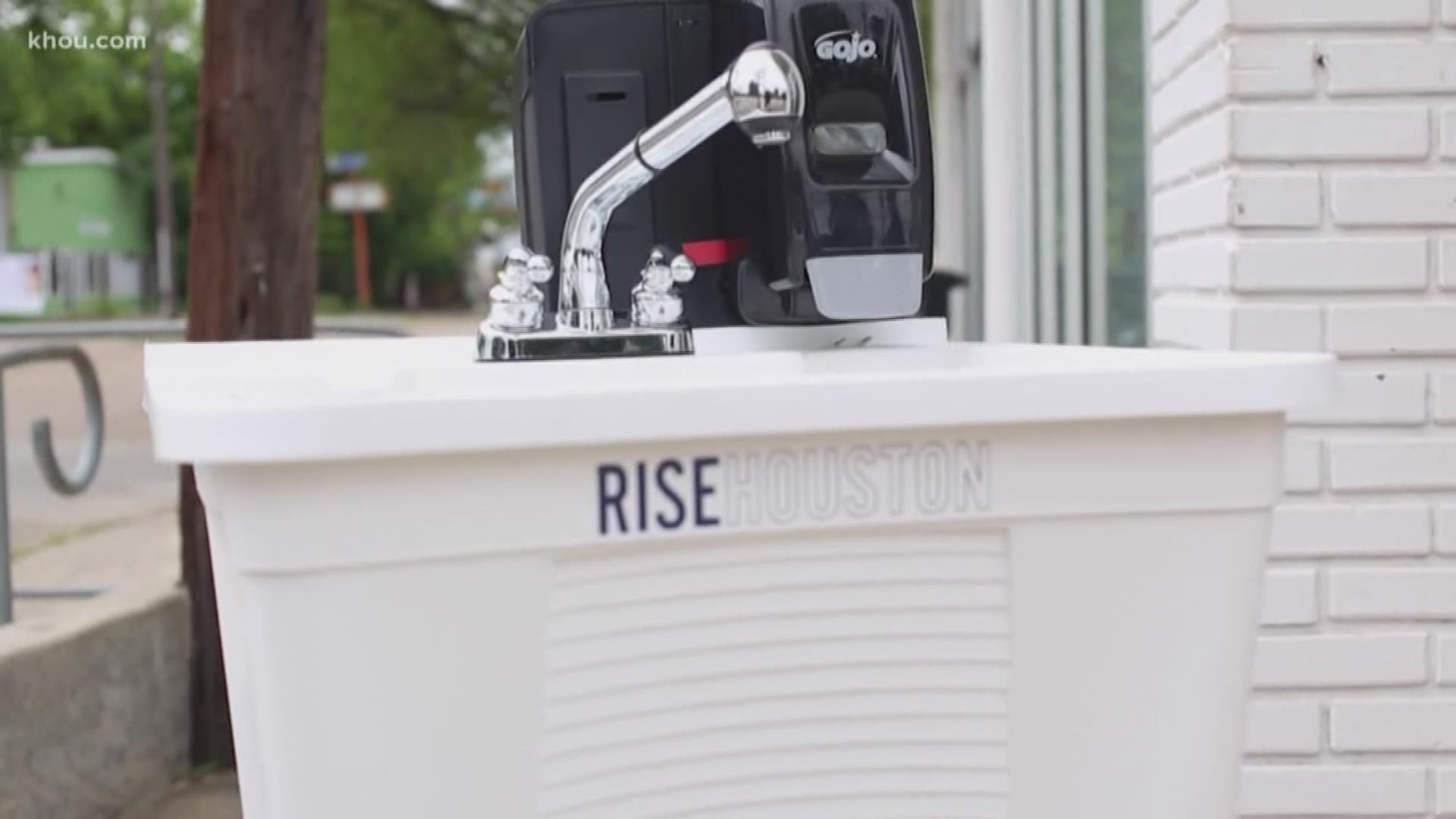HOUSTON — "Standing for Houston" means to stand for everyone, including those who are homeless.
So when Stan DePue, the pastor of the new church Rise Houston, wanted to find a way to help the community during the coronavirus pandemic, he knew a little soap and water would go a long way.
"What we want the heart of our church to be is serving our city. And so who needs it in this season? A lot of people," DePue said Monday from his home office.
DePue grew up in the Greater Houston Area and, with his wife and children, began work on Rise Houston a few months ago.
"We were open to anyone for about four weeks before all this started," he said.
With the temporary closure of public restrooms, DePue quickly realized there was a great need for hand-washing stations. But portable stations were rented out.
So he began buying hoses and tubes and sink basins and got to work building his own portable station.
"I’ve attached a soap dispenser and a paper towel dispenser to the sink," he said. "It’s got all they need."
Each station took DePue about three hours to build. Eight self-operating sinks are now positioned throughout Houston. The stations haven't been vandalized or stolen and volunteers make sure they're fully stocked with soap, water and paper towels.
DePue and church members will pray with anyone open to a blessing.
"I just also hope that they feel valued and thought of and that they feel like they’re seen and known, you know?" he said.
Rise Houston is partnering with Star of Hope and other organizations that help Houston's homeless population. DePue is hoping community donations will help his 'Clean Hands' program expand.
A brand new church, motivated to serve, elevated by action.
"And so we rise up. We rise up and help however we can."
Coronavirus symptoms
The symptoms of coronavirus can be similar to the flu or a bad cold. Symptoms include a fever, cough and shortness of breath, according to the Centers for Disease Control. Some patients also have nausea, body aches, headaches and stomach issues. Losing your sense of taste and/or smell can also be an early warning sign.
Most healthy people will have mild symptoms. A study of more than 72,000 patients by the Centers for Disease Control in China showed 80 percent of the cases there were mild.
But infections can cause pneumonia, severe acute respiratory syndrome, kidney failure and even death, according to the World Health Organization. Older people with underlying health conditions are most at risk for becoming seriously ill. However, U.S. experts are seeing a significant number of younger people being hospitalized, including some in ICU.
The CDC believes symptoms may appear anywhere from two to 14 days after being exposed.
Human coronaviruses are usually spread through...
- The air by coughing or sneezing
- Close personal contact, such as touching or shaking hands
- Touching an object or surface with the virus on it, then touching your mouth, nose or eyes before washing your hands.
Help stop the spread of coronavirus
- Stay home when you are sick.
- Eat and sleep separately from your family members
- Use different utensils and dishes
- Cover your cough or sneeze with your arm, not your hand.
- If you use a tissue, throw it in the trash.
- Follow social distancing
Lower your risk
- Wash your hands often with soap and water for at least 20 seconds. If soap and water are not available, use an alcohol-based hand sanitizer.
- Avoid touching your eyes, nose, and mouth with unwashed hands.
- Avoid close contact with people who are sick.
- Clean and disinfect frequently touched objects and surfaces.
- If you are 60 or over and have an underlying health condition such as cardiovascular disease, diabetes or respiratory illnesses like asthma or COPD, the World Health Organization advises you to try to avoid crowds or places where you might interact with people who are sick.
Get complete coverage of the coronavirus by texting 'FACTS' to 713-526-1111.

